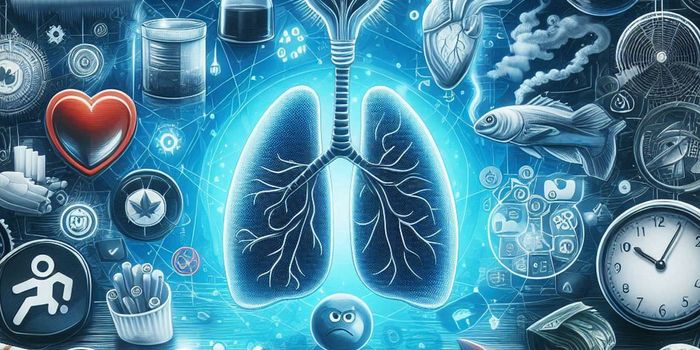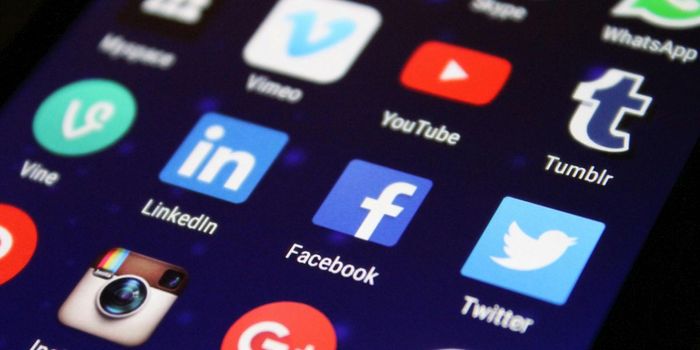Delaying Pleasure Influenced by Dopamine, Intelligence
Consider the insurance salesman. She or he must overcome the preference in most people for immediate positive reinforcement, asking them to pay real money now to stave off the possible negative effects of a disaster that might never happen.
Humans seek reward in order to trigger, among other things, a rush of dopamine, one of the neurotransmitters often cited as being responsible for the experience of feeling good. But dopamine is so much more than that: our brain chemistry includes a bounty of dopamine our primate relatives can only dream of (or should I say could dream of if they had more dopamine). It's been credited with assisting in our intelligence, ability to plan ahead, and resist pleasure.

Neuroscientists and psychology and behavioral researchers remain puzzled by the neurotransmitter action involved in a decision to obtain a lesser reward that will provide immediate results or postpone receipt of a reward with at least a reasonable idea that the later reward will be greater. Thanks to new research published in Biological Psychiatry, the role of dopamine in relation to the brain's reward center is better understood, in particular around how it helps an individual make this decision.
Understanding such a decision mechanism could have significant implications for treating impulse control disorders and addictive behaviors in addition to supporting more globally applicable behaviors like putting money into a retirement account (retirement planning) or planning and eating meals to optimize the chance for a long and healthy life.
Researchers from Stanford University and the University of North Carolina at Chapel Hill describe their experiment in the Biological Psychiatry article. They used rats to examine the role of dopamine while dynamically tracking the component parts of value-based decision making.
Rodents were given a pair of rewards, and trained to choose between them. One was a small treat that could be obtained immediately and the other was a larger version of the treat that could be obtained after a delay, which was varied.
Regina Carelli, one of the report's lead authors, noted the study found that dopamine signaled the more preferred option. She said: More dopamine was observed for cues signaling immediate large rewards, but this declined as the delay to the large reward increased."
This neurotransmitter response mimics what scientists often call delay discounting, a phenomenon whereby the chooser devalues rewards that are substantially delayed in time. The practical result is that people tend to choose a smaller immediate reward than a larger delayed reward.
Researchers didn't stop there. They used an optogenetics technique with a second set of rodents. This time, they manipulated the dopamine activity during cues for the larger, delayed rewards. By feeding back the earlier observed patterns of dopamine release, the researchers found they could influence the decision making processes.
Said Carelli: "These exciting new findings suggest that dopamine plays a sophisticated role in helping to guide specific aspects of decision-making behavior."
Whether you grew up Catholic or were one of the child participants in Walter Mischel's famous "marshmallow test" at Stanford University back in the 1960s, delayed gratification has long been framed as something that could lead one to the promised land. In the case of Catholics, it's heaven. In Mischel's experiement, four-year-olds were left in a room with a marshmallow for up to 20 minutes and told that if they didn't eat the marshmallow before an adult returned, they'd be rewarded with a second marshmallow.
Regardless of the possible biases that have been pointed out in that study, most notably regarding sample size and trust in authority, the longitudinal study revealed that the children who postponed gratification performed much better on college entry exams (SAT scores), educational attainment, and body mass index. I don't think the body mass index measure has anything to do with educational outcomes, but I do think it's interesting based on personal experience. For instance, when I don't plan my meals (using PFC future thinking capability), but rather wander into a store or restaurant when I'm already hungry, it's much hard to control my impulse to load up on less healthy food choices.
Dr. John Krystal, editor of Biological Psychiatry, is quoted in Science Daily describing the importance of understanding how delay discounting works: "Delay discounting is an important and poorly understood process. Understanding how it works sheds light on how dopamine signals reward in the brain. It also may help to develop preventive strategies for drug abuse, gambling disorders, and other clinical conditions where delay discounting may play a role."
Delay discounting does seem poorly understood, or at least subject to a good deal of academic skepticism. The literature challenging the results of Mischel's famous experiment is fairly extensive. The essence of the results, however, appear to hold up. Noah Shamosh and Jeremy Gray published a meta-analysis of research on the relationship between intelligence and delay discounting in 2007. The team reviewed for publication bias, type of intelligence (verbal only versus verbal and nonverbal), choice paradigm, measure of the delay discounting (time versus discount rate), reward material (what, in effect, was the carrot), reward scheme (hypothetical, randomized payoff, or real disclosed compensation), and socioeconomic status.
Shamosh and Gray effectively found across 24 studies that higher intelligence was associated with lower delay discounting, a.k.a. higher ability to postpone reward. Put another way, cognitive ability was higher in individuals demonstrating less impulsivity.
Mischel wrote a book last year, The Marshmallow Test: Mastering Self-Control, in which he explores how adults facing challenges like quitting smoking or grieving a loss can learn to use cognitive skills in the same way the original kids in the Stanford lab used them to delay reward. He told Atlantic magazine: The most interesting thing, I think, about the studies is not the correlations that the press picks up, but that the marshmallow studies became the basis for testing all kinds of adults and how adults deal with difficult emotions that are very hard to distance yourself from, like heartbreak or grief.
This all begins to coalesce when you consider that a lack of dopamine (or inefficient dopamine processing) is implicated in numerous psychological and neurological disorders including Alzheimer's, depression, and-significantly-binge eating, addiction, and gambling. These last three, significantly, feature similar symptoms and comorbidity with impulse control disorders.
Follow Will Hector on Twitter: WriterWithHeart
(Sources: Atlantic Monthly; Psychology Today; Science Daily)








